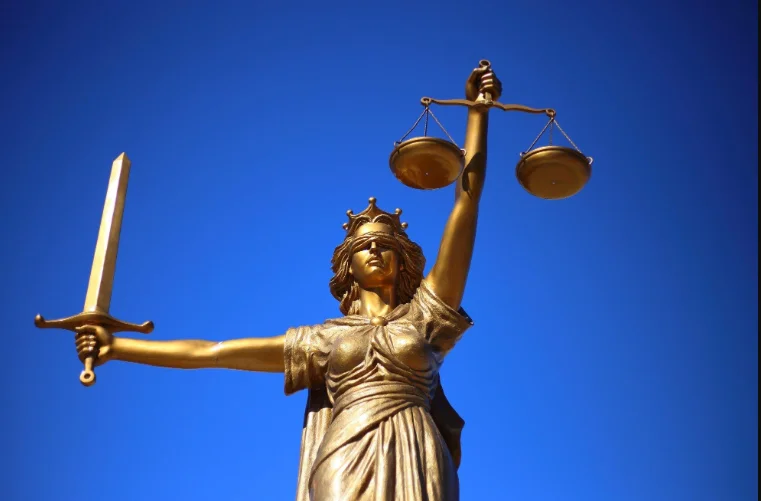In the intricate world of white-collar crime, where accusations can be as damaging as convictions, navigating the legal process requires expertise and strategic finesse.
For individuals facing allegations of white-collar crimes such as fraud, embezzlement, or insider trading, the path from accusation to acquittal is fraught with challenges. However, with the right approach and legal representation, it’s possible to mount a robust defense and emerge victorious.
This article delves into white collar criminal defense. It sheds light on the stages and strategies used to secure good outcomes.
Understanding White Collar Crime
Before diving into the defense process, it’s key to understand what makes up white-collar crime. Regular crimes involve violence. In contrast, white-collar offenses are non-violent. They focus on deceit, manipulation, or breaching trust for money. Perpetrators are often people in trusted roles in businesses, government, or finance.
Examples of White-Collar Crimes
White-collar crimes are usually non-violent. They are committed by individuals or organizations in business or professional settings for financial gain. Here are some examples:
Embezzlement
Misappropriating funds or assets entrusted to one’s care, often by an employee stealing from an employer. This can include lying on records. It can also include making fake accounts. Or it can include making unauthorized transactions for personal gain.
Securities Fraud
Deceiving investors or manipulating the stock market through false or misleading information. This can include insider trading. It can also include Ponzi schemes and other fraud. These activities manipulate stock prices or deceive investors.
Insurance Fraud
People commit insurance fraud. They do this by submitting false claims or giving wrong information to insurance companies. They do it to get undeserved payouts.
Money Laundering
People disguise illegally acquired funds. They do this by sending the funds through legal businesses or financial institutions. This practice is frequently employed to circumvent taxes and obscure illicit activities.
Bribery
Exchanging money, gifts, or incentives for favors or special treatment is a practice observed in both private and public sectors. Corrupt people often use this unethical trick to get an unfair advantage.
Identity Theft
Using someone’s details without permission for deceit includes actions. These include opening unauthorized credit accounts, making purchases, and accessing confidential information. All of this is done under a false identity.
Cybercrime
Unauthorized access to computer systems or networks is prohibited. People do these actions to steal data, cause disruption, or commit crimes. They include activities like hacking, phishing, and malware.
Tax Evasion
Evading taxes on purpose involves deceitful tactics. These include hiding income, making false deductions, and using offshore accounts. Such accounts are intricate and advanced. Safeguarding against these actions demands expertise in criminal law and finance.
Stages of White Collar Criminal Defense
Defending white collar criminals has several stages. The stages vary slightly based on the case and jurisdiction. Here are the common stages:
Investigation and Charges
Defense against white-collar criminal charges typically starts with a deep examination by law enforcement or regulators. This phase can last for months or even years. Investigators meticulously review financial records, interview witnesses, and delve into forensic details.
After the investigation, authorities may choose to file charges. The charges would be against individuals suspected of orchestrating the alleged offenses. These charges are often detailed in a formal indictment or complaint. This paves the way for later legal proceedings.
Building a Defense Strategy
When facing white-collar criminal charges, it’s key to build a strong Defense strategy. This involves analyzing evidence and identifying legal issues. Then, you craft a solid story to counter the prosecution. Skilled attorneys from Shealey Law Firm will negotiate with the prosecution to reduce or dismiss charges.
In white-collar cases, a common defense tactic is to challenge the evidence presented by prosecutors. This includes questioning document validity, and witness statements, and highlighting investigation flaws.
Legal Proceedings: Trial and Sentencing
If an agreement can’t be reached through talks or pre-trial procedures, the case goes to trial. At the trial, both sides present evidence and arguments to a judge and/or jury, who then decide the defendant’s guilt or innocence.
If the defendant is cleared, they’re free of all charges and the legal battle ends. But if found guilty, the case moves to sentencing. There, the court decides the punishment based on factors. These include the nature of the offenses, the defendant’s record, and any other relevant circumstances.
Post-Conviction Options
If convicted, the defense can pursue post-conviction options. These options can challenge the verdict or seek a better outcome. These options may include:
Appeals
Filing an appeal to a higher court challenging errors or irregularities that occurred during the trial. The appellate court may overturn the conviction, order a new trial, or modify the sentence.
Motion for New Trial
You can file a motion for a new trial if new evidence is found. The evidence could have affected the trial’s outcome. Or, you can file if there were errors during the trial. The errors had a big impact on the verdict.
Post-Conviction Relief Petition
You can file a post-conviction relief petition to challenge: constitutional violations or ineffective trial help. This option is typically pursued after all other avenues have been exhausted.
Pardon or Commutation
The defendant may also seek clemency from the governor or president. This would come in the form of a pardon for forgiveness or commutation for sentence reduction. These options are usually only for cases with clear evidence. They involve wrongful conviction or excessive sentencing.
Appeal
The defendant can file an appeal if they believe that legal errors happened at the trial. For example, if the jury got wrong instructions or if there was not enough evidence for the verdict. The appellate court will review the case and either uphold or overturn the original verdict.
Modification of Sentence
In some cases, a defendant may seek a modification of their sentence through a request to the court. This could involve reducing the length of their sentence or changing it to a less severe form, such as probation or community service. However, this option is typically only granted in exceptional circumstances.
Navigating the White Collar Criminal Defense Process
In summary, white collar criminal defense is full of challenges and complexities. It goes from accusation to acquittal. And, it is about white-collar criminal defense. But with the right approach and a lawyer, accused people can protect their rights well.
When facing heavy accusations, remember your rights and choices. Skilled lawyers will be by your side. They will help you build a strong defense plan. With it, you can confidently navigate the twists and turns of white-collar criminal proceedings.

Doris Pollard, a mesmerizing wordsmith and experienced blogger, crafts narratives that carry readers into unexplored realms. Infused with insightful perspectives and vibrant storytelling, Doris’s mastery of language captivates both hearts and minds, making an enduring impression on the literary landscape.


I don’t think the title of your article matches the content lol. Just kidding, mainly because I had some doubts after reading the article. https://www.binance.info/register?ref=IXBIAFVY
**mitolyn reviews**
Mitolyn is a carefully developed, plant-based formula created to help support metabolic efficiency and encourage healthy, lasting weight management.